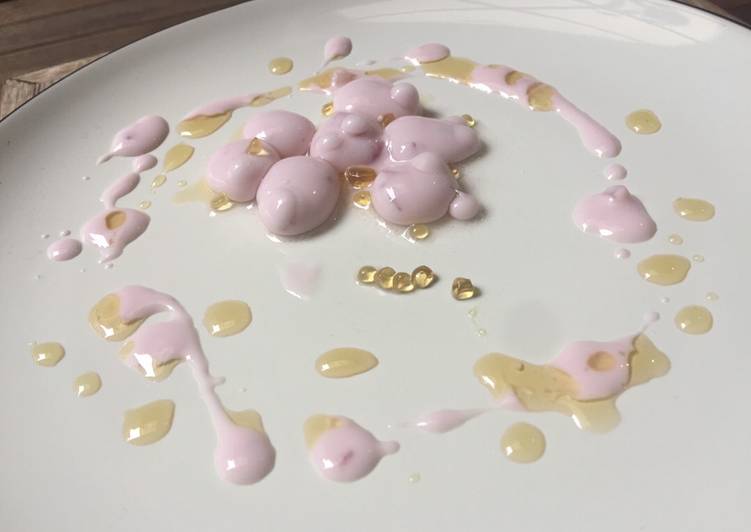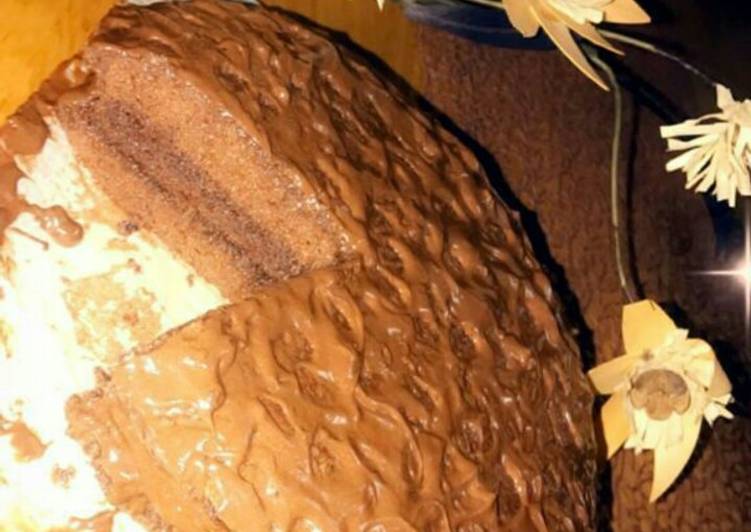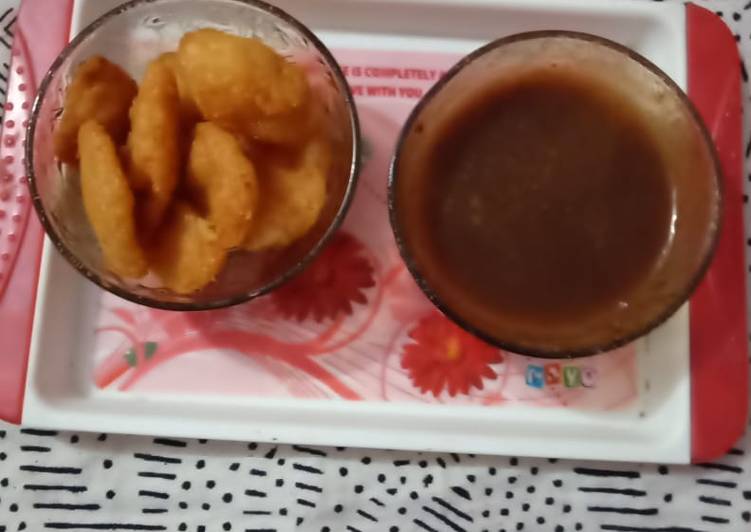
Hello everybody, hope you’re having an amazing day today. Today, I will show you a way to prepare a distinctive dish, molecular gastronomy-mango juice spherification. It is one of my favorites food recipes. For mine, I’m gonna make it a little bit tasty. This will be really delicious.
The molecular gastronomy methods performed by top chefs on TV always appeared challenging for someone like me who never tried them before. Then, I discovered another method called frozen reverse spherification, which allowed me to fill the silicone mold with mango juice to create the. This video shows you the possibilities of basic spherification, how it works and how to make spherification caviar with a syringe or a caviar maker.
Molecular gastronomy-mango juice spherification is one of the most favored of current trending meals in the world. It is easy, it’s fast, it tastes yummy. It’s appreciated by millions daily. Molecular gastronomy-mango juice spherification is something that I have loved my whole life. They’re nice and they look wonderful.
To begin with this recipe, we have to first prepare a few ingredients. You can cook molecular gastronomy-mango juice spherification using 4 ingredients and 9 steps. Here is how you can achieve that.
The ingredients needed to make Molecular gastronomy-mango juice spherification:
- Make ready 2 cups mineral water
- Make ready 150 ml mango juice (can be substituted with any other kinds of juice)
- Get 1 teaspoon sodium alginate
- Take 1 teaspoon calcium lactate
Its program includes three areas, as cooking was recognized to have three components: social, artistic, and technical. In other words, molecular gastronomy looks at the molecules in our food and how they change. (Gastronomy is the study of picking, preparing, and How does spherification work? Like much of food science, it is based on some specific chemical reactions. These reactions take place in solutions.
Instructions to make Molecular gastronomy-mango juice spherification:
- Prepare 2 cups of mineral water in a big container, then pour in 1 teaspoon of sodium alginate
- Mix it with a mixer, so that the sodium alginate can blend perfectly with the water
- Set aside the sodium alginate mixture for 15 mins
- Prepare the mango juice, then pour in 1 teaspoon of calcium lactate
- Mix the calcium lactate with the mango juice thoroughly
- After 15 minutes, scoop approximately 1 teaspoon of the calcium lactate and mango juice mixture, then drop it slowly to the sodium alginate mixture to make sure it forms the shape of a sphere (here i used a fruit bowler as the sphere-making apparatus)
- Wait for approximately 3-5 minutes, then drain out the spheres
- Place the spheres into a bowl of water, just to make sure there aren’t any excess of sodium alginate mixture left in the outer layer of the spheres
- (optional) plate the spheres well, just to make it even more appealing. here is a REFERENCE on how to display the spheres
One of the most interesting things in molecular gastronomy is spherification. Spherification is basically a process that seals a liquid in a jelly like membrane. To make the spherification process easier we took a page from the Alinea cookbook and froze the mango juice in spherical ice molds. Explore molecular gastronomy and family science by making your own popping boba or juice balls using the Spherification Kit! The delicate crispy Mango Croquant is another creation of molecular gastronomy chef Ferran Adria.
So that’s going to wrap it up with this exceptional food molecular gastronomy-mango juice spherification recipe. Thank you very much for reading. I am sure you can make this at home. There is gonna be more interesting food at home recipes coming up. Remember to save this page on your browser, and share it to your loved ones, colleague and friends. Thank you for reading. Go on get cooking!


